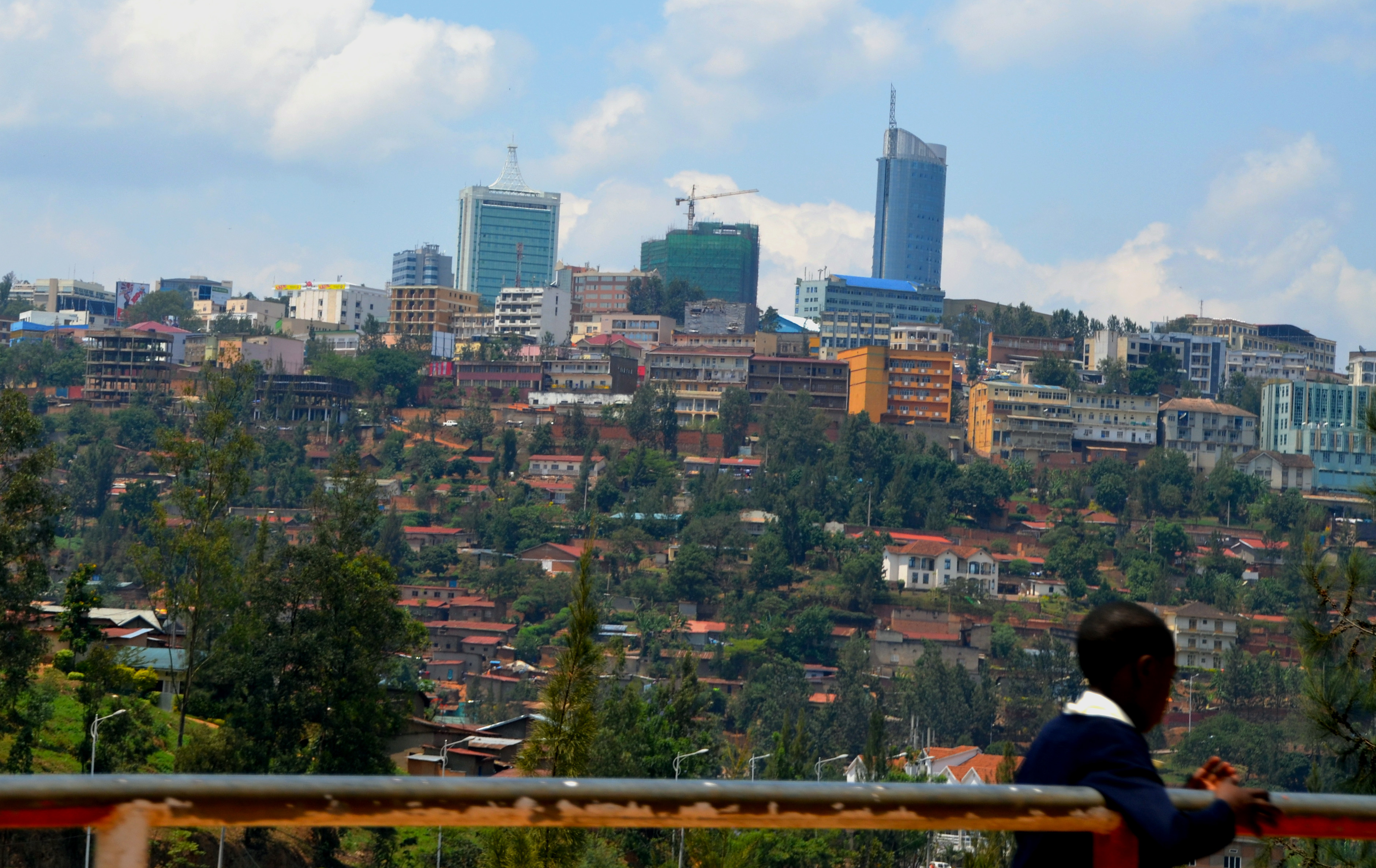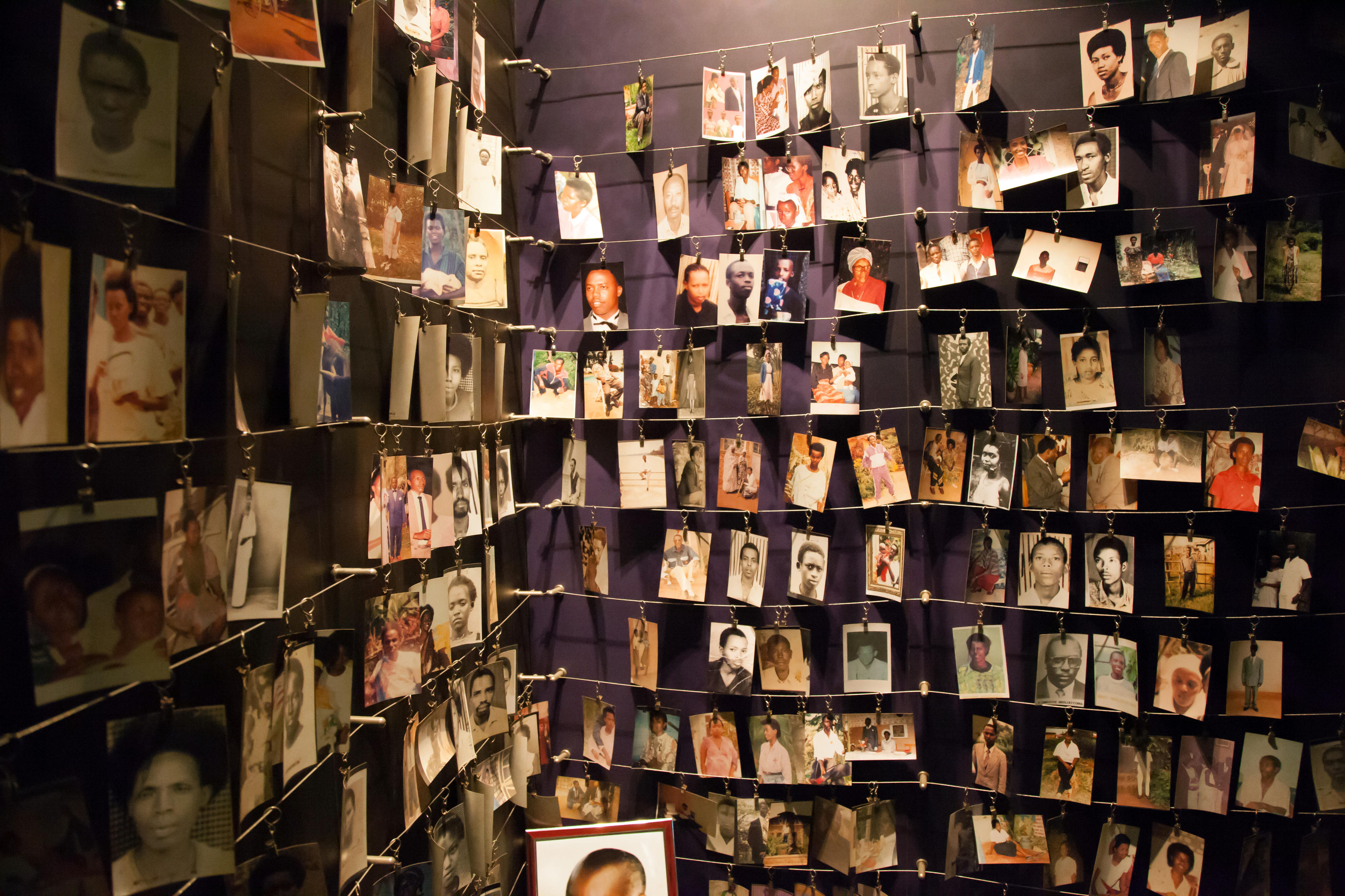Political situation Deficits in the area of democracy and the rule of law
View of Kigali from the Kigali Genocide Memorial Centre
By endorsing the African Union's Agenda 2063 (External link), Rwanda has committed itself to good governance, democracy and the rule of law and respect for human rights. The country has also signed the most important international human rights agreements. Rwanda’s government must now live up to these commitments.
The country’s difficult relations with its neighbours, especially the Democratic Republic of the Congo and Burundi, are hampering peaceful development in the entire region. The capture of the provincial capitals of Goma (North Kivu) and Bukavu (South Kivu) by the M23 and the Rwandan army (RDF) in early 2025 is a clear violation of the territorial integrity and sovereignty of the Democratic Republic of the Congo and has been strongly condemned by the German government, the European Union and the Security Council of the United Nations.
Ambitious goals
The development strategies of the Rwandan government are aimed at significantly reducing the number of poor people and achieving strong economic growth.
In its Vision 2050 (External link) the government has formulated the ambitious goal of shifting Rwanda into the higher-middle-income country group by 2035 and into the high-income country group by 2050. This would mean however that average annual economic growth would need to be more than ten per cent. The government has laid out the political, economic and social changes that it believes will be needed in its 2nd National Strategy for Transformation (External link) (NST2 2024-2029).
Democracy and human rights
The country’s democratic development has so far not kept pace with its socio-economic development. Freedom of opinion, freedom of the media and freedom of association are severely restricted, the space for civil society and parliamentary opposition is limited. The international NGO Freedom House (External link) rates Rwanda as “not free”. In 2025, Human Rights Watch published a report (External link) with numerous examples that document the repressive climate in the country.
The presidential and parliamentary elections of the last few years did not meet international democratic standards. The international community criticised, in particular, that opposition parties and candidates had not been admitted to the elections.
Women's rights
The Rwandan government advocates for gender equality. The rights of women to own land, to inherit property, to divorce and to be protected against gender-based violence have been legally enshrined.
Although many women in rural areas are still constrained by tradition, women do play an important part in policymaking at national level. The constitution requires that at least 30 per cent of seats in Rwanda’s parliament be held by women. Rwanda has a higher proportion of women in parliament than any other country in the world, with 61 per cent of seats held by women. Women hold important positions in the government and the private sector.
Addressing the legacy of the genocide
Photographs of victims of the genocide at the Kigali Genocide Memorial Centre. The photos were provided by surviving family members who want to remember their loved ones.
On 7 April 2024, memorial ceremonies with high-level international participation commemorated the 30th anniversary of the genocide against the Tutsis. The trauma of those events, which claimed the lives of an estimated one million people over a period of 100 days, continues to shape Rwandan politics and society to this day. The heavy legacy of the genocide is a key issue in all areas of politics. The ruling party, RPF, owes much of its legitimacy to the part it played in ending the killing. Despite the beginning of a generational shift, it continues to adhere to the traditions of a cadre party that emerged from a rebel movement, with unwavering loyalty to the president, and the security of the regime and the country being seen as utmost priorities.
As at: 05/03/2025

